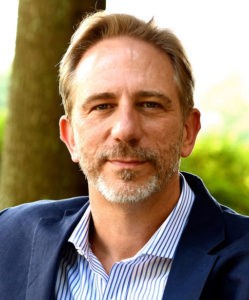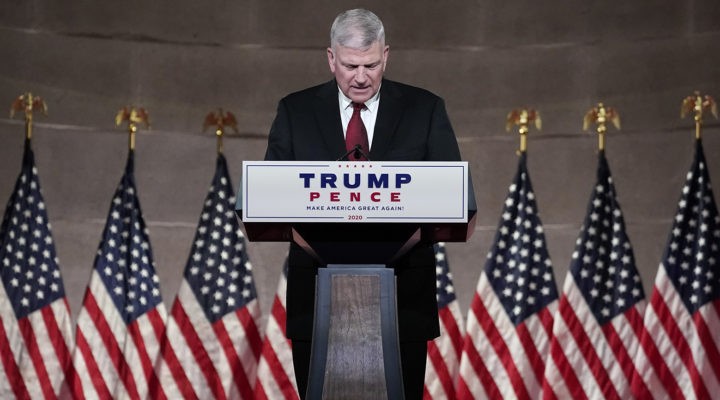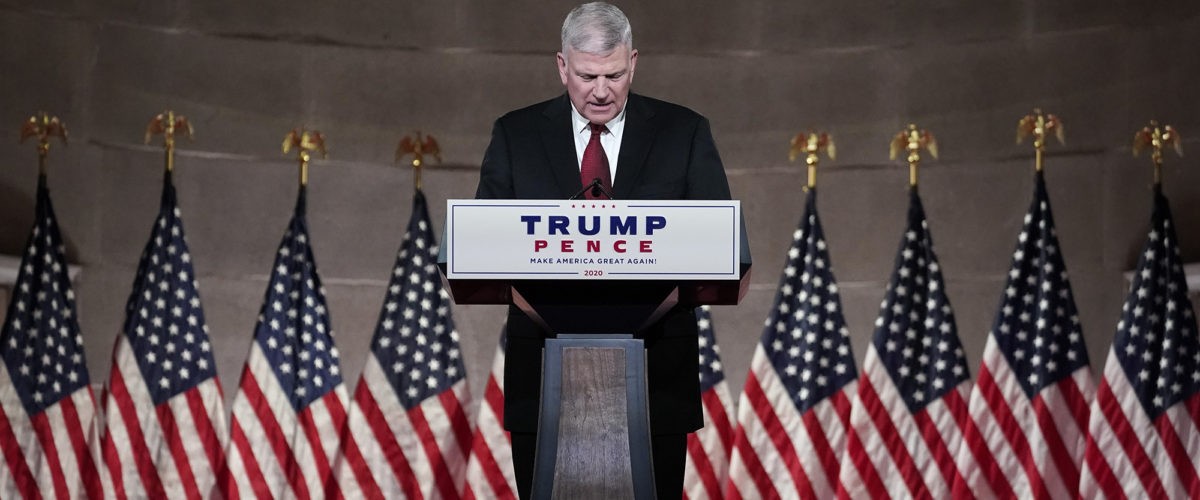Christians should support democracy. This should not be a shocking statement. It should not even need to be said. U.S. Baptists, at least, used to be fairly clear about it.
But today, it is becoming increasingly clear from looking around the world and at our own nation that Christians need to make a fresh case for liberal democracy. That’s because some of the most ardent exponents of ideological movements undercutting democracy are conservative Christians.
I can remember the exact day I first discovered that some conservative Christians are not all that into democracy.

David Gushee
It was 20 years ago. My oldest daughter was in third grade at a Christian school in West Tennessee. She came home asking for some help with her social studies homework. When I sat down with her to look at it, I discovered Holly was being taught a neo-Puritan civics curriculum, in which God’s design for human government is rule by godly Christian men applying Scripture under the sovereignty of God.
Basically, the political vision of that curriculum was similar to that which dominates Calvinist churches — rule by male elders accountable to God rather than the people. God’s power flowed down to the elders who then exerted it in the community on behalf of the well-being of the people but without their control. It was fundamentally anti-democratic.
These days we are witnessing a surging conservative Christian flirtation with authoritarianism. We see its manifestations in countries as diverse as Brazil, Hungary and Russia. Some of the most atrocious regimes of the 20th century were built on the support of conservative Christians for authoritarian, anti-democratic or faux democratic governments — consider Franco’s Spain, Mussolini’s Italy, Petain’s France, Hitler’s Germany.
There does appear to be an abiding attraction to authoritarianism on the part of many types of conservative Christians — Orthodox, Catholic and Protestant. Democracy is messy. Its outcomes do not always conform with Christian preferences. God’s law (as many Christians understand it) does not necessarily set the parameters for human law. People get a vote whom some Christians would rather not count as equal voices in the national community. A free press constantly challenges authority.
“There does appear to be an abiding attraction to authoritarianism on the part of many types of conservative Christians.”
The old saying (attributed to St. John of Kronstadt) that “In hell there is democracy, in heaven there is a kingdom,” seems to resonate with some. I have seen it online in this country. Some Christians are yearning for a politics that looks more like a kingdom than a democracy.
Stepping back, we must acknowledge that it’s not easy to get from Scripture to democracy. There’s little if any democracy in the Bible. Most of the politics we see there is imperial, theocratic, tyrannical. Jesus himself spoke in the monarchical image of the kingdom of God.
It took many centuries of Rome and Christendom, of state churches and crusades and religious wars, for the West to produce the flawed versions of liberal democracy that emerged beginning in the 18th century. Those democracies can be critiqued for their manifest undemocratic injustices, a common theme on the left. But it is easy to forget, at least on the left, that another whole strand of critique of democracy has long survived on the right. It has a particular flavor on the Christian Right, much of which still desires a Christian American kingdom.
“We have reached a moment in which the basics of American democracy must again be defended.”
This rightist Christian authoritarianism has been reactivated by Donald Trump, and not just in his corrosive attack on American democracy after he lost the election of 2020 and cried fraud. He was violating democratic norms (and many laws) long before that, all while seducing Christians with promises of their kind of Christian America. He is still around, still pulling at the unraveling threads of our democracy, and still retaining the support of tens of millions of conservative Christians.
It appears we have reached a moment in which the basics of American democracy must again be defended, in Christian terms. That requires us to see that what was born in Philadelphia in 1776 (as modified in 1789) was a Western — Christian — Enlightenment goulash. It is messy. But it is better than the alternatives.
Nobody ever guaranteed that our constitutional democracy would survive in perpetuity. Our generation is just the latest to have to decide, again, whether we will continue the flawed but extraordinary experiment in self-government begun in 1776.
David P. Gushee is a leading Christian ethicist. He serves as Distinguished University Professor of Christian Ethics at Mercer University and is the past president of both The American Academy of Religion and The Society of Christian Ethics. He’s the author of Kingdom Ethics, After Evangelicalism, and Changing Our Mind: The Landmark Call for Inclusion of LGBTQ Christians. He and his wife, Jeanie, live in Atlanta. Learn more: davidpgushee.com or Facebook.
Related articles:
Neither democracy nor religious freedom are biblical concepts, John MacArthur declares
How democracy dies: ‘Give us a king’ | Opinion by Erich Bridges
Our grandchildren will curse us for dismantling democracy | Opinion by Marv Knox


